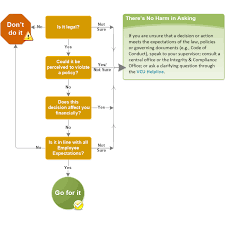RFQs: Streamlining the Procurement Process
In the world of business, efficiency and effectiveness are key factors in ensuring success. This is particularly true when it comes to procurement. Companies rely on a smooth and streamlined procurement process to obtain the goods and services they need to operate effectively. One tool that plays a crucial role in this process is the Request for Quotation (RFQ).
So, what exactly is an RFQ? In simple terms, an RFQ is a document used by organizations to solicit quotes or bids from potential suppliers for specific products or services. It serves as a formal invitation for suppliers to submit their pricing and other relevant information in order to compete for a contract.
The RFQ process begins with the organization identifying its requirements and creating a detailed specification of the desired product or service. This specification is then shared with potential suppliers through the RFQ document. Suppliers review the requirements and submit their quotes within a specified timeframe.
One of the major advantages of using RFQs is that they allow organizations to compare multiple supplier offerings side-by-side, enabling them to make informed decisions based on factors such as price, quality, delivery time, and other relevant criteria. This competitive bidding process often leads to cost savings for organizations as suppliers vie for business by offering competitive prices.
Furthermore, RFQs help establish clear communication between buyers and suppliers. By providing detailed specifications upfront, organizations can ensure that suppliers have a clear understanding of what is expected. This reduces misunderstandings and allows both parties to align their expectations from the outset.
Another benefit of RFQs is that they promote transparency in the procurement process. Since all participating suppliers receive the same information simultaneously, it creates a level playing field where everyone has equal opportunity to compete based on merit rather than personal relationships or biases.
Moreover, RFQs enable organizations to build relationships with potential suppliers beyond just price negotiation. Through this process, companies can evaluate supplier responsiveness, professionalism, and willingness to meet their specific requirements. This evaluation helps organizations identify reliable and trustworthy suppliers who can become long-term partners.
In today’s digital age, RFQs have become even more efficient with the help of technology. Online platforms and procurement software allow organizations to automate the RFQ process, making it faster and more streamlined. These tools enable buyers to easily create, distribute, and manage RFQs, as well as track supplier responses in real-time.
In conclusion, RFQs play a vital role in the procurement process by facilitating efficient communication between buyers and suppliers. They promote transparency, competition, and cost savings while helping organizations identify reliable suppliers for their needs. With the help of technology, RFQs have become even more effective in streamlining procurement processes. By leveraging this powerful tool, businesses can enhance their overall efficiency and make informed decisions that drive success.
6 Essential Tips for Effective RFQs: Mastering Requirements, Clear Communication, Accurate Quotes, Timely Responses, Expertise Showcase, and Professional Follow-up
- Understand the requirements
- Clarify doubts
- Provide accurate quotations
- Be responsive and timely
- Showcase your expertise
- Follow up professionally
Understand the requirements
When it comes to Request for Quotations (RFQs), one of the most important tips for success is to thoroughly understand the requirements. The success of any procurement process hinges on accurately defining what is needed, and this begins with a clear understanding of the requirements.
Before drafting an RFQ, take the time to gather all relevant information and clearly define what you are looking for. This includes identifying the specific products or services required, as well as any technical specifications or quality standards that must be met. It’s crucial to have a comprehensive understanding of your needs in order to effectively communicate them to potential suppliers.
By understanding the requirements upfront, you can ensure that your RFQ document includes all necessary details. This clarity will help suppliers provide accurate quotes that align with your needs, leading to more meaningful and competitive bids.
Additionally, understanding the requirements allows you to evaluate supplier responses more effectively. When reviewing quotes, you can easily determine if suppliers have addressed all aspects of your requirements and if their proposed solutions meet your expectations.
Moreover, by having a solid grasp on the requirements, you can ask insightful questions during the RFQ process. If there are any ambiguities or uncertainties in the specifications provided by suppliers, you can seek clarification to ensure everyone is on the same page.
Overall, understanding the requirements is essential for a successful RFQ process. It lays the foundation for effective communication with potential suppliers and helps ensure that their responses align with your needs. By investing time in clarifying and defining your requirements upfront, you set yourself up for a smoother procurement process and increase the chances of finding the right supplier who can meet your expectations.
Clarify doubts
Clarify Doubts: A Key Tip for Effective RFQs
When it comes to Request for Quotations (RFQs), one key tip that can greatly enhance the effectiveness of the process is to clarify any doubts or uncertainties before finalizing the documents. Clear communication and understanding between buyers and suppliers is crucial for a successful procurement process.
An RFQ serves as a formal invitation for suppliers to submit their quotes and other relevant information. However, it is not uncommon for suppliers to have questions or doubts regarding the requirements or specifications outlined in the RFQ. These doubts, if left unaddressed, can lead to misunderstandings, inaccurate quotes, and potential complications down the line.
To ensure a smooth and efficient RFQ process, it is essential that buyers take the time to address any doubts or uncertainties raised by suppliers. This can be done through open lines of communication, such as email or dedicated Q&A sessions. By promptly responding to supplier inquiries and providing clear explanations or additional information where needed, buyers can eliminate confusion and ensure that all parties are on the same page.
By clarifying doubts early on in the RFQ process, both buyers and suppliers benefit. Suppliers gain a better understanding of what is expected from them, allowing them to submit accurate quotes that align with buyer requirements. On the other hand, buyers receive more precise bids that they can evaluate based on their specific needs.
Moreover, addressing doubts demonstrates professionalism and commitment from both sides. It shows that buyers are attentive to supplier concerns and are willing to provide necessary clarifications. This fosters trust and establishes a positive working relationship between buyers and suppliers.
In addition to promoting clear communication during the RFQ process, it is also advisable for buyers to include a section in the RFQ document specifically dedicated to frequently asked questions (FAQs). This preemptively addresses common queries that suppliers may have regarding specifications, delivery timelines, payment terms, or any other relevant details. By proactively providing this information, buyers can minimize the number of doubts raised and streamline the RFQ process further.
In conclusion, clarifying doubts is a crucial tip for a successful RFQ process. By promptly addressing supplier inquiries and providing clear explanations, buyers can ensure that all parties have a common understanding of the requirements. This leads to more accurate quotes, minimizes misunderstandings, and establishes a foundation of trust between buyers and suppliers. Incorporating an FAQ section in the RFQ document can also preemptively address common queries and further streamline the process. With clear communication and understanding, RFQs become more effective tools for procurement success.
Provide accurate quotations
When it comes to Request for Quotations (RFQs), accuracy is key. Providing accurate quotations is not only important for suppliers, but also for the organizations requesting the quotes. The accuracy of a quotation can greatly impact the decision-making process and ultimately determine the success of a business transaction.
For suppliers, accuracy in quotations is crucial because it establishes trust and credibility. When submitting a quote, it is essential to carefully review the RFQ requirements and provide pricing that reflects the accurate cost of goods or services. Overquoting or underquoting can lead to misunderstandings, delays, or even loss of business opportunities.
On the other hand, organizations rely on accurate quotations to make informed decisions. They need to have confidence that the provided prices are reliable and reflective of what they will actually pay. Inaccurate quotations can lead to budget overruns, unexpected costs, or even contractual disputes down the line.
To ensure accuracy in quotations, suppliers should take several steps. First and foremost, they should thoroughly analyze the RFQ document and understand all the requirements stated by the organization requesting quotes. This includes considering factors such as quantity, quality specifications, delivery terms, payment terms, and any other relevant details.
Secondly, suppliers should carefully calculate their costs before providing a quotation. This involves considering direct costs (e.g., raw materials, labor) as well as indirect costs (e.g., overhead expenses). It’s important to include all applicable costs in order to provide an accurate price that covers all expenses while still remaining competitive.
Additionally, suppliers should be transparent about any assumptions made when preparing their quotation. If there are uncertainties or variables that could impact pricing (e.g., fluctuating market prices), it’s important to communicate these clearly so that both parties are aware of potential changes or adjustments.
Lastly, suppliers should also consider including any additional value-added services or benefits they can offer within their quotation. This can help differentiate themselves from competitors and provide added value to the organization requesting quotes.
In conclusion, providing accurate quotations in RFQs is crucial for both suppliers and organizations. Accuracy builds trust, ensures transparency, and contributes to successful business transactions. By carefully reviewing RFQ requirements, calculating costs diligently, and being transparent about assumptions or variables, suppliers can deliver reliable quotations that help organizations make informed decisions.
Be responsive and timely
In the world of RFQs (Request for Quotations), being responsive and timely is a crucial tip that can make a significant difference in the procurement process. When organizations send out RFQs to potential suppliers, they expect prompt and timely responses. Here’s why being responsive and timely matters:
Firstly, responsiveness demonstrates professionalism and reliability. When a supplier receives an RFQ, responding promptly shows that they are serious about the opportunity and value the buyer’s time. It reflects positively on their commitment to providing excellent customer service.
Secondly, being responsive allows suppliers to clarify any questions or concerns they may have regarding the RFQ. This open line of communication ensures that both parties are on the same page and helps avoid misunderstandings or delays later in the process. It also allows suppliers to seek clarification on any unclear specifications, leading to more accurate quotes.
Moreover, timeliness is essential because it enables buyers to evaluate all received quotes efficiently. When suppliers submit their quotes in a timely manner, it allows buyers to compare different offerings simultaneously and make informed decisions promptly. Delays in receiving quotes can disrupt the procurement timeline and potentially impact project deadlines.
Additionally, being responsive and timely fosters trust between buyers and suppliers. When suppliers consistently respond promptly to RFQs, it builds confidence in their ability to meet deadlines and deliver as promised. Trust is a vital element in establishing successful long-term business relationships.
Lastly, being responsive can give suppliers a competitive edge. In some cases, buyers may have limited timeframes for evaluating quotes or making decisions. Suppliers who respond quickly have an advantage by ensuring their proposal is considered early on in the decision-making process.
To ensure responsiveness and timeliness in dealing with RFQs, suppliers should prioritize effective communication channels such as email or online platforms designated by the buyer. They should also allocate resources appropriately to handle incoming RFQs promptly.
In conclusion, being responsive and timely when dealing with RFQs is essential for both buyers and suppliers. It demonstrates professionalism, fosters trust, and allows for efficient decision-making. By embracing this tip, suppliers can enhance their chances of securing contracts and building strong relationships with buyers.
Showcase your expertise
When it comes to submitting a response to a Request for Quotation (RFQ), one tip that can set you apart from the competition is to showcase your expertise. RFQs are an opportunity for suppliers to demonstrate their capabilities and prove why they are the best choice for the job.
To effectively showcase your expertise, start by thoroughly understanding the requirements outlined in the RFQ. Take the time to analyze each aspect and identify how your products or services align with those needs. Highlight any unique features or benefits that set you apart from other suppliers.
Next, craft a compelling response that clearly communicates your expertise and capabilities. Provide detailed information about your experience in similar projects, highlighting successful outcomes and satisfied customers. Include relevant certifications, awards, or industry recognition that validate your expertise.
In addition to past successes, consider including case studies or testimonials from previous clients. This provides real-world examples of how your products or services have delivered value and exceeded expectations. Such evidence can help build trust and confidence in your abilities.
Furthermore, don’t hesitate to share any innovative approaches or technologies you employ that can bring added value to the project. Demonstrate how your unique solutions can solve specific challenges outlined in the RFQ more effectively or efficiently than competitors.
Remember, when showcasing your expertise, it’s important to strike a balance between being informative and concise. Avoid overwhelming the reader with excessive technical jargon; instead, focus on clearly articulating how your expertise directly addresses their needs and delivers superior results.
Lastly, always ensure that your response is well-organized and visually appealing. Use headings, bullet points, and graphics where appropriate to make it easy for evaluators to quickly grasp key information about your expertise.
By following this tip and effectively showcasing your expertise in an RFQ response, you can significantly increase your chances of standing out among competitors. Remember, it’s not just about offering competitive pricing; it’s about demonstrating why you are the best choice based on your knowledge, experience, and ability to deliver exceptional results.
Follow up professionally
When it comes to Request for Quotations (RFQs), following up professionally can make a significant difference in the procurement process. Following up shows your commitment and interest in the supplier’s response, while also ensuring that you have all the necessary information to make an informed decision.
One important tip when following up on RFQs is to be prompt. Time is of the essence in business, and delays can lead to missed opportunities or potential disruptions in your supply chain. As soon as the deadline for submitting quotes has passed, it’s essential to reach out to suppliers who haven’t responded yet. A polite email or phone call can serve as a gentle reminder and encourage them to submit their quotes promptly.
When following up, it’s crucial to maintain professionalism and courtesy throughout your communication. Remember that suppliers are also busy managing their own businesses and may have multiple RFQs to respond to. Use a polite tone and express gratitude for their time and effort in considering your request.
In your follow-up message, be specific about what you are requesting. If there are any additional questions or clarifications needed, clearly state them so that suppliers understand what information you require. This will help streamline the process and ensure that you receive accurate and comprehensive quotes.
Furthermore, keep track of all communications related to the RFQ process. Maintain a record of all emails, phone calls, or meetings with suppliers. This documentation will serve as a reference point during evaluation and contract negotiations.
Lastly, remember that effective follow-up goes beyond just receiving quotes. It involves timely communication throughout the entire procurement process until a final decision is made. Keep suppliers informed about any updates or changes in requirements so that they can adjust their proposals accordingly.
By following up professionally on RFQs, you demonstrate your commitment to finding the best possible supplier for your needs while maintaining strong business relationships. Promptness, courtesy, clarity of communication, and maintaining records are key elements of successful follow-up. By implementing these practices, you can streamline the procurement process and ensure that you have all the necessary information to make well-informed decisions for your organization.




